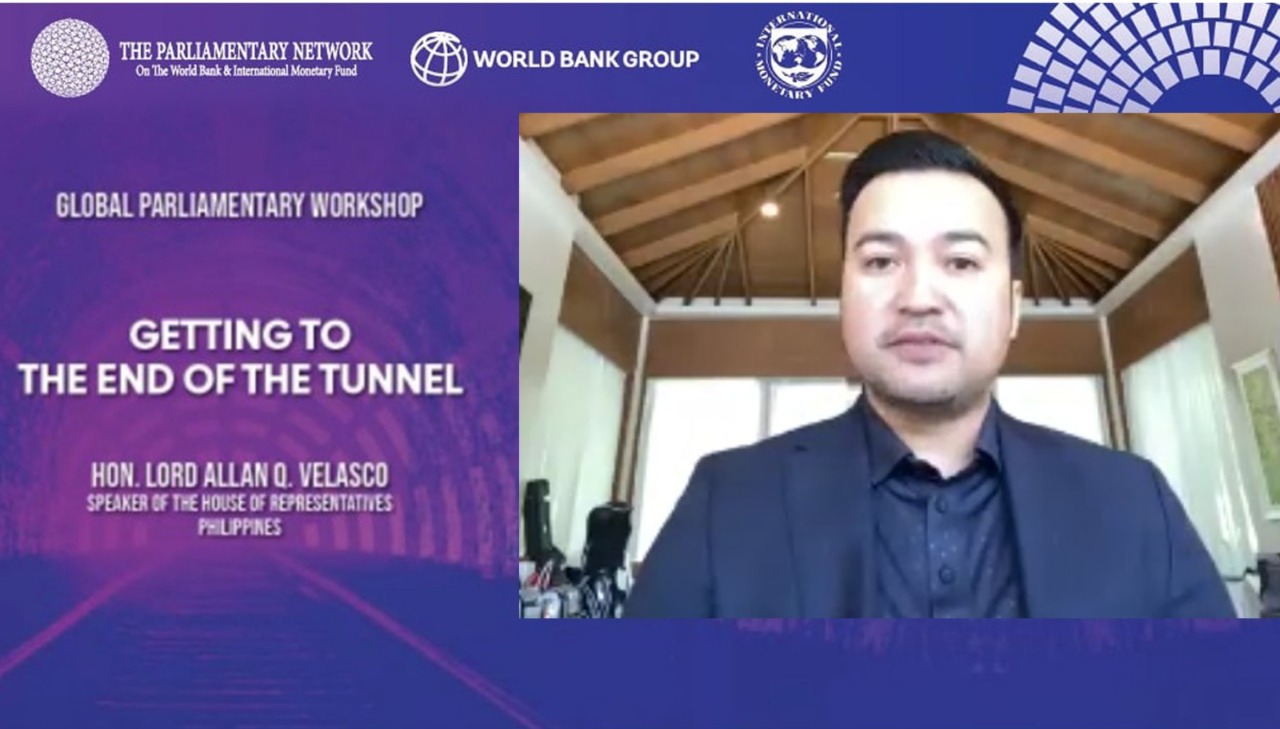MANILA, Philippines — Socioeconomic inequalities that have existed for a very long time all over the world can be corrected during the COVID-19 pandemic, Speaker Lord Allan Velasco said.
“Even as this pandemic severely tests our respective health systems and economies, it can yet be our collective opportunity to harmoniously usher long-needed and wide-ranging socioeconomic reforms toward a definitive and sustainable path,” Velasco told the 2021 Global Parliamentary Workshop, an online event organized by The Parliamentary Network on the World Bank and International Monetary Fund (IMF) held on April 5.
The House leader stressed the need for an international collective effort to achieve those reforms.
“The pandemic continues to surface the fact that we are all interconnected. Individuals, communities, and nations form a chain, and we all have the responsibility to assure that our own link is not the weakest in the midst of this global threat,” he said.
Velasco also highlighted the key role that lawmakers play to ensure that government programs would benefit the people who would need them the most. He pointed out that most legislative bodies also played a big part in crafting a country’s budget and development plans.
“As parliamentarians, we have the means to reallocate resources to where they can help our respective populations the most […] (which would) benefit the unemployed and the informal sector, and support the marginalized, especially the young, the poor and women,” he added.
In March 2020, the Philippines was forced to adopt strict lockdown measures for Luzon, including Metro Manila, to avoid a bigger COVID-19 outbreak. The measures required people to stay home, allowing them to venture out only for essential activities.
However, the measures left many people without jobs for over a month, forcing them into lockdown with money to spend. The government has provided financial aid, but a lot of families, especially those in the lower-income sectors, believe that the assistance was not enough.
By July, the unemployment rate has reached unprecedented levels, with a national survey saying that 45.5 percent of adult Filipinos had no jobs during that time.
Velasco noted that the Philippines would need a whole-of-nation approach to fix the inequalities that were deeply amplified by the COVID-19 pandemic.
“Effective coordination should be non-negotiable on all levels — local, regional, national, and global,” he said.
“Because of our shared goals, it should be easy to promote coalition building, and in so doing smoothly share technologies, exchange manpower, and align financing,” he added.
Velasco is also pushing for his own version of a stimulus package worth P420 billion, aimed at kickstarting the economy after the gross domestic product contracted by 9.5 percent in 2020.
“This will enable us to respond to both the urgencies of the present time and the projected demands on our health systems and economies, post-pandemic,” he said.
“Government must be the beacon of hope and stability during all crises, but especially during the present COVID-19 crisis,” he added. “Government must inform the people well, pursue restructuring of itself, and utilize resources toward a solid and sustainable economic recovery.”
Velasco headed the Philippine delegation to the said workshop, which gave lawmakers across the globe a chance to talk with World Bank and IMF senior managers about crafting possible strategies to recover from the impact of the COVID-19 pandemic.
Among the other members of the delegation are Rep. Joey Salceda, who chairs the House ways and means committee; Rep. Junie Cua, who chairs the banks and financial intermediaries committee; and Deputy Minor Floor Leader Kit Belmonte.
